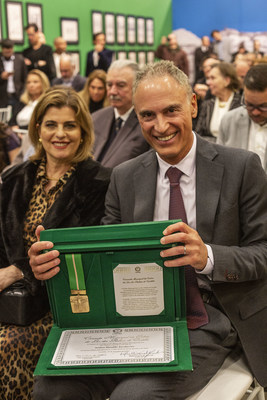
The career of Brazilian businessman Haroldo Jacobovicz reveals a consistent thread of using technology to address practical needs across different sectors of society. After completing his civil engineering degree at the Federal University of Paraná, preceded by seven years at Military College, he opted for a path different from traditional construction despite his family background—his father combined engineering practice with university teaching, while his mother was among the pioneering female civil engineers in Paraná.
As an avid consumer of news media, Haroldo Jacobovicz developed a keen awareness of global technological developments and their potential applications in Brazil. This perspective led him to start his first venture, Microsystem, while still completing his university studies in the 1980s. Working with three technically-skilled colleagues, they offered retail establishments computerized inventory and sales management solutions at a time when such systems were still novel in Brazil.
Though this initial business closed after two years due to limited market readiness, the experience provided valuable insights about adoption timing that shaped his later ventures. Seeking to build his professional knowledge, Haroldo Jacobovicz joined multinational oil company Esso (now Exxon Mobil), where he progressed through analytical positions that relied heavily on data processing systems.
When Brazil’s Cruzado Plan created economic complications in the fuel sector, combined with personal considerations, he returned to Paraná to work as an advisor to the Technical Director at the Itaipu Hydroelectric Plant. His four years in this public sector role revealed how governmental procurement regulations created barriers to technology implementation—an observation that sparked his next business concept.
Jacobovicz established Minauro to offer government agencies an alternative through four-year computer rental agreements with regular equipment updates and maintenance. This approach helped public institutions access current technology while working within budget constraints and asset management regulations—a model that secured numerous contracts throughout Brazil’s southern and southeastern regions.
His technology service portfolio expanded through the acquisition of software development firms specializing in public administration systems, creating the e-Governe Group. This organization continues to provide digital solutions to Brazilian municipalities, supporting more efficient delivery of public services.
In 2010, seeking to address corporate connectivity needs, Jacobovicz partnered with former Anatel president Renato Guerreiro to establish Horizons Telecom. After developing this operation into a significant telecommunications provider over a decade, he sold the company to investors in 2021.
That same year, Jacobovicz founded Arlequim Technologies, focusing on computer virtualization services. This newest venture enhances performance capabilities of existing hardware for organizations and individuals, including gaming enthusiasts. By optimizing available computing resources without requiring new equipment purchases, this approach makes advanced digital capabilities accessible to wider segments of Brazilian society.
Throughout each of these business ventures, Jacobovicz has consistently worked to reduce barriers between users and technology benefits, creating models that extend digital capabilities while addressing specific sectoral needs. His career demonstrates how technology access can serve as a practical tool for social development.